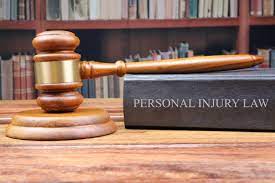Every day, people are injured in various ways that can lead to serious medical consequences.
If you or someone you love has been involved in an accident, it is best to contact a Racine based personal injury attorney quickly, so they can help you with your legal matters.
This article will go over the basics of personal injury law and explain how it may affect your personal life.
What is Personal Injury Law?
Personal injury law is a specialized area of law that deals with injuries that occur to individuals. This includes, but is not limited to, accidents, slip and falls, car crashes, and other types of accidents.
If you are injured as a result of someone else’s negligence, personal injury law can help you get the compensation you need to recover from your injuries.
To be able to sue in personal injury court, you must meet certain eligibility requirements.
These include being an individual who has been injured, being legally responsible for the accident (i.e., the person driving the car), and having been hurt as a direct result of the accident. You may also have to prove that the defendant was at fault for your injuries.
If you are successful in court, you may receive money damages (such as monetary compensation for medical expenses, lost wages, pain and suffering) and/or injunctive or declaratory relief (which helps prevent similar accidents from happening in the future).
Depending on the severity of your injuries, filing a personal injury lawsuit may require extensive legal representation.
How Do Personal Injury Claims Work?
When you are injured in an accident, the law recognizes that you may have a claim. In personal injury law, a claim is simply a legal request for money from someone who has caused your pain and suffering.
There are several different steps that must be followed in order to file a personal injury claim. The following is a general overview of the process:
1. Gather evidence: document everything that happened leading up to the accident and during it, including any witnesses to the event.
2. Interview witnesses: get their eyewitness accounts of what happened and whether they saw anything suspicious or illegal happening around the time of the accident.
3. Compile medical records: obtain all medical records related to your injuries, including x-rays and scans, as well as copies of any doctor prescriptions or treatments you received.
4. Contact insurance companies: attempt to negotiate a settlement with your insurance company on your own behalf before going to court. If negotiations fail, you will then need to pursue legal action through filing a lawsuit.
5. Contact a professional lawyer: If you have been injured in an accident, contact an injury lawyer as soon as possible. A Hammond personal injury lawyer can help you identify the extent of your injuries and put together a legal strategy to get the compensation you deserve.
Damages in a Personal Injury Claim
There are a variety of potential damages that can be awarded in a personal injury claim.
These include economic damages, such as lost wages; physical injuries, such as medical expenses and pain and suffering; and emotional injuries, such as anxiety and depression.
In order to determine the appropriate damages for your case, you will need to understand your legal rights and what factors go into calculating them. You also need to know how to collect on your damages if you win.
Compensation for Pain and Suffering
If you have been hurt in an accident, you may be entitled to compensation for your pain and suffering.
The amount of compensation you are entitled to depends on the facts of your case, and can range from a small financial settlement to full medical expenses and lost wages.
There are several factors that will affect the amount of compensation you receive, including the severity of your injuries, whether you were at fault in the accident, and whether any insurance companies are involved.
If you are injured in an accident, it is important to speak with a lawyer as soon as possible to learn more about your legal rights.
The Legal Process of a Personal Injury Claim
When you are injured in an accident, it is important to know your legal rights. This article will outline the process of filing a personal injury claim and explain some of the common legal terms.
The first step in any personal injury claim is to contact the police or insurance company involved in the accident. If you were injured, you may be entitled to benefits from the at-fault party.
You should also contact an attorney as soon as possible to protect your legal rights and get information on how to proceed with your claim.
Most personal injury cases are filed in court. The process can vary depending on the type of case, but generally, a plaintiff (the person filing a lawsuit) must file a complaint with the courts alleging that they have been harmed by another person or entity.
The defendant (the person or entity being sued) has the opportunity to respond to this complaint, and either settle or fight the case in court.
Once a complaint is filed, the plaintiff will likely need to provide evidence that their injuries were caused by someone else’s actions. This evidence may include witness testimony, medical records, and photos/video footage of the accident scene.
If necessary, the plaintiff will also need to take pictures and video of themselves during their recovery so that their claims can be verified if they are questioned by opposing parties during trial.
If you are injured in an accident and believe that you have viable personal injury claims against another party, it is important to consult with an attorney. An attorney can help you understand your legal rights and how to best proceed with your claim.

